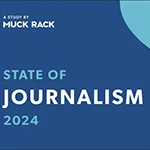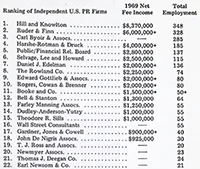 |
A study from LLYC says that “companies must reinvent themselves to manage talent,” and offers some tips for those that want to successfully manage their employees in a workplace that has been permanently changed by the COVID-19 pandemic.
The agency’s Talent Trends report outlines 10 trends that it says will play a major role in that reinvention over the course of the coming year.
Not surprisingly, the first of those trends is what it calls “the activist employee.” The growing importance job seekers now place on company positions toward social issues has made it necessary for companies to address employee activism. Creating internal tools for listening to employee opinion is a key strategy for handling this, as is building bridges between companies and activist groups.
Several of the trends revolve around the changing structure of the workplace in the work-from-home world, and the desire of workers to better balance their personal and professional lives.
The report suggests several ways in which companies can restructure work processes to make that balance more achievable. Prioritizing the work being done over any specific work schedule can help employees focus on goals, rather than on simply being “available,” it says. Companies also need to accommodate the inevitable interruptions employees face while working from home.
The need for constant learning—for both workers and managers—is also emphasized. With the advent of teleworking on a large scale, managers need to learn new techniques to help them better handle remote workers. Also, with the pace of digital transformation sure to accelerate, there will be a need for both upskilling (acquiring new skills) and reskilling (professional retraining) workers.
One unexpected trend: The importance of workers over 50. With their experience in crisis handling, they are well equipped to succeed in an era when almost every day seems to bring another crisis.
“This is a key moment for the future of companies, and their relationships with their talent should be at the heart of the decisions they make,” said LLYC partner and senior engagement director David Gonález Natal. “We need to make a commitment to training as a key method of obtaining competitive advantages. We also need to build more solid communications channels.”


 Brand has a powerful effect on a company’s valuation, but the level of brand understanding in the investment community leaves a lot to be desired, according to a new study from Brodeur Partners, Interbrand and NewtonX.
Brand has a powerful effect on a company’s valuation, but the level of brand understanding in the investment community leaves a lot to be desired, according to a new study from Brodeur Partners, Interbrand and NewtonX. AI may still be viewed with a wary eye by most media pros, but its use is growing, according to a new study from Muck Rack.
AI may still be viewed with a wary eye by most media pros, but its use is growing, according to a new study from Muck Rack. A new study from Walker Sands says that some marketers have been putting the cart before the horse when it comes to the relationship between marketing channels and business outcomes.
A new study from Walker Sands says that some marketers have been putting the cart before the horse when it comes to the relationship between marketing channels and business outcomes. Thought leadership can make made B2B brands more "powerful and attractive to buyers," according to Edelman report.
Thought leadership can make made B2B brands more "powerful and attractive to buyers," according to Edelman report. The deadline for O'Dwyer's 2024 rankings of PR firms, a benchmark study of the growth of the industry annually since 1970, is Mon., Mar. 11, 2024.
The deadline for O'Dwyer's 2024 rankings of PR firms, a benchmark study of the growth of the industry annually since 1970, is Mon., Mar. 11, 2024.


 Have a comment? Send it to
Have a comment? Send it to 
No comments have been submitted for this story yet.